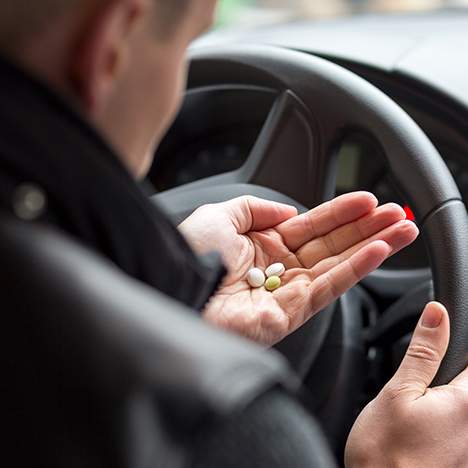[2023 Update]: Study after study continue to show that ADHD and car accidents go hand in hand and is a significant risk factor while operating a motor vehicle — and that is a serious public health issue. According to Joseph Biederman, M.D., when ADHD inattention, impulsivity and distractibility get behind the wheel, serious risk of accidents and injury increase. Within the first month of driving, teens with ADHD are 62% more likely than their non-ADHD peers to be involved in an automobile crash. Over the first four years of having a license, drivers with ADHD are 37% more likely to get into a crash, twice as likely to drive while intoxicated and 150% more likely to receive an alcohol, drug or moving violation compared to their non-ADHD peers.
[2021 Update]: In late 2020, a study was published in the Journal of the American Academy of Child and Adolescent Psychiatry reinforcing previous research that had identified a link between ADHD and car accidents. For adults with a history of ADHD in childhood, car crashes were 1.45 times higher, and further increased for those with continuing symptoms, at 1.81 times. At the same time, the research also provided positive news for those whose ADHD symptoms had remitted, citing crash rates that were equal to those who had never been diagnosed with ADHD. Learn more about how ADHD is one of the major causes of distracted driving and how Avrek Law may be able to help if you’ve been injured due to the actions of an unmedicated individual driving with ADHD.
Attention deficit hyperactivity disorder, commonly referred to as ADHD, is a neurological disorder characterized by hyperactivity, impulsiveness, and inattentiveness. It is typically associated with children, but teens and adults also suffer from its effects. As a result, children with ADHD typically have behavior problems in school. Some kids with ADHD may have a difficult time sitting still, while others may lack focus, have problems paying attention to the teacher, or comprehending lessons.
In older children and adults, the effects of ADHD impact every aspect of their lives including interactions with family and friends, school and work. Even everyday activities, such as driving a car, can be a challenge.
Common Symptoms: Can ADHD Affect Driving?
In teens and adults, ADHD symptoms may include constant fidgeting, such as swinging legs or tapping fingers. Adults with ADHD can feel “revved up” or have a difficult time relaxing, and they are easily distracted or impulsive. Teens and adults with ADHD often are impatient and fail to foresee the consequences of their actions. As a result, they may engage in risky behavior such as reckless or aggressive driving. Teens with ADHD have also been found to be involved in four times as many car accidents as teens who do not.
 ADHD Treatments
ADHD Treatments
While there is no known cure for ADHD, dietary changes, counseling and medication can help control the symptoms. Common ADHD medications include stimulants such as Ritalin, Vyvanse, Focalin and Adderall. These medications help those with ADHD to stay focused and ignore distractions. Studies have shown that stimulant medications are effective in 70% to 80% of patients. Thus, taking medication as prescribed by a physician can help ensure that drivers with ADHD are better able to focus on the road. Medication can help drivers be more patient and less impulsive, making it less likely that they will engage in risky driving behavior.
Despite the success rates in treatment, there are people with ADHD who refuse to take medication. One reason is that the medication causes side effects in some individuals, including decreased appetite, weight loss, difficulty in sleeping, and jitteriness. Often, these common side effects disappear or become less severe over time. There are, however, more severe side effects such as an increased risk for cardiovascular disease, worsening of existing depression, anxiety or even psychosis.
Driving with ADHD: Who is Liable?
What if someone with ADHD declines to take their prescribed medication, gets behind the wheel, and causes an accident in which property is damaged and/or people are injured? As a defense, the driver with ADHD may argue that they drove recklessly because of their ADHD and therefore they should not be held responsible for the accident.
There are millions of people who suffer from ADHD and other disorders or injuries that can make driving a challenge. Regardless, this does not excuse poor driving, and rarely serves as a valid excuse in the eyes of the law. Drivers in virtually every jurisdiction are required to follow the “Rules of the Road” and to drive in a responsible manner. It is not a valid excuse if the driver claims they were impaired by the effects of ADHD, particularly if the driver has been previously diagnosed with the condition and is aware of its effects. If a driver with ADHD causes an accident, they can be liable just like any other driver who causes a car accident.
If you’ve been injured as a result of ADHD and car accidents, or were a passenger in a car accident caused by someone diagnosed with ADHD, Avrek Law may be able to help. With more than 50 years of combined experience serving personal injury victims, our track record speaks for itself: Over $2 Billion recovered for Avrek Law clients in over 45,000 cases.
Call today for a free case evaluation!
